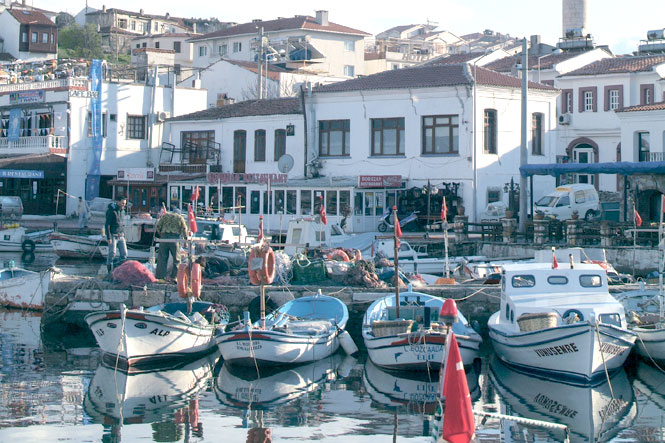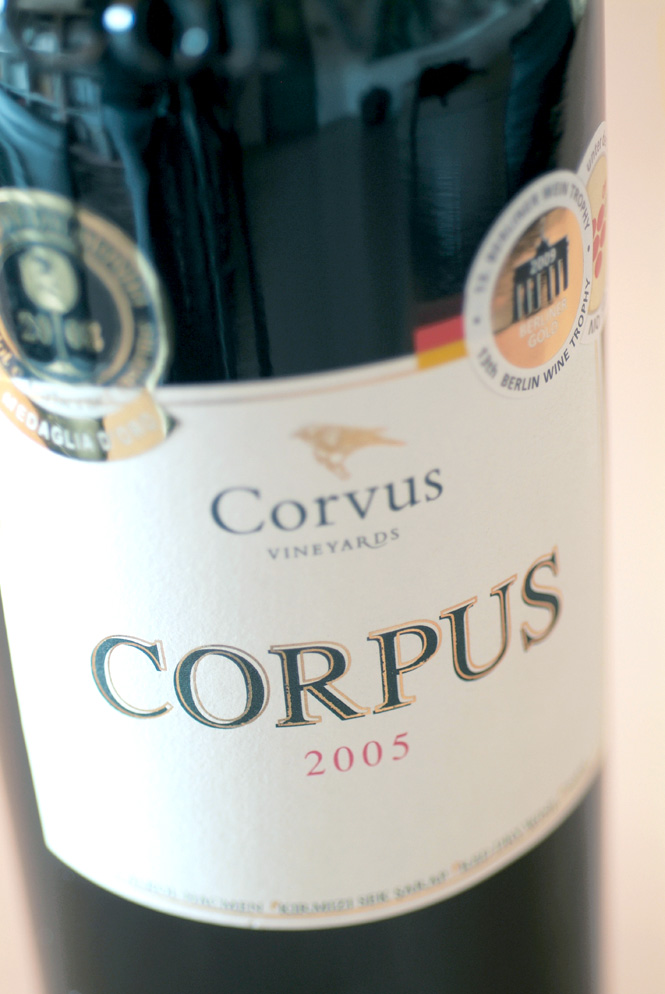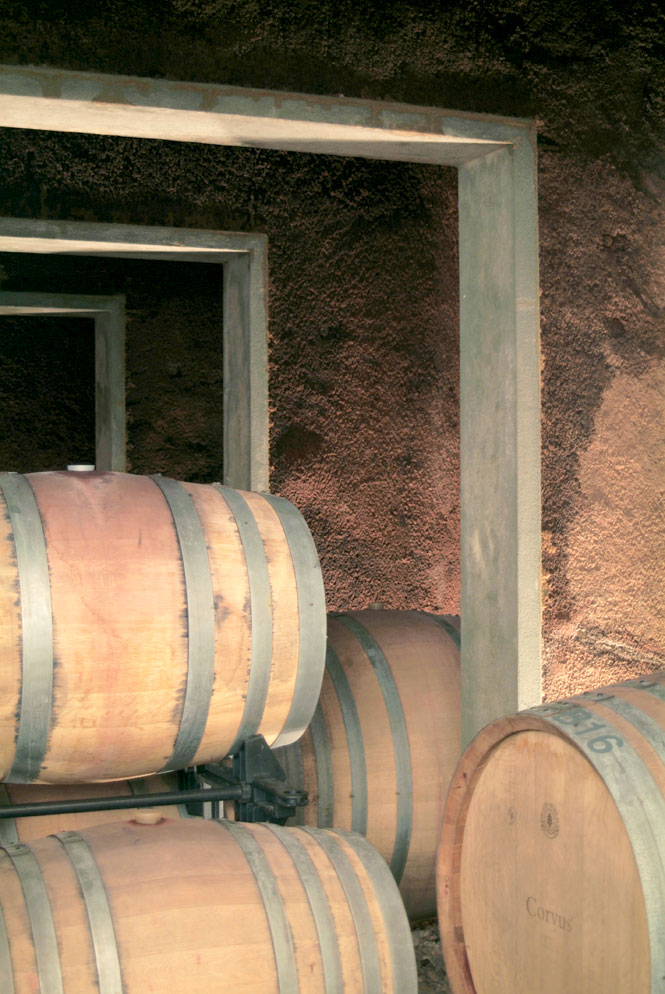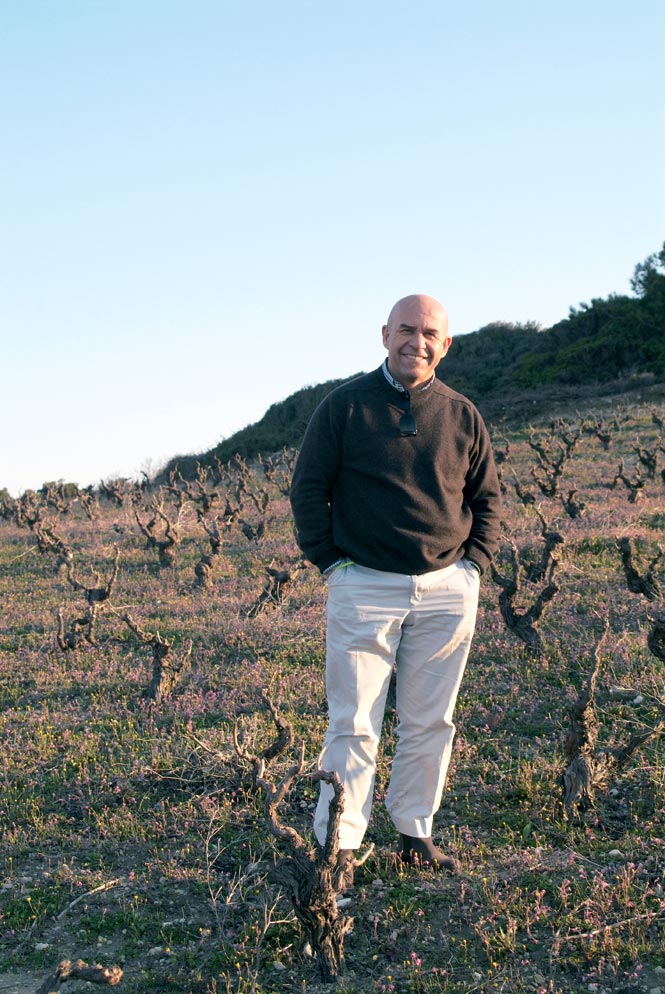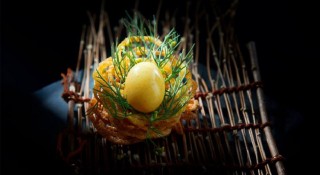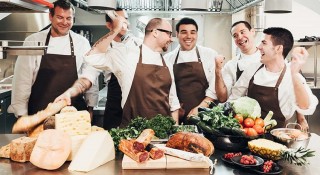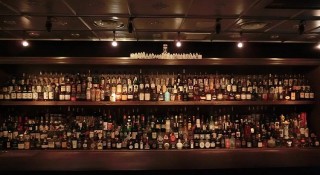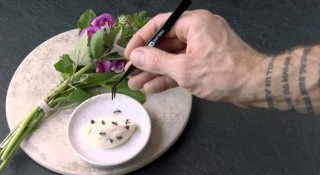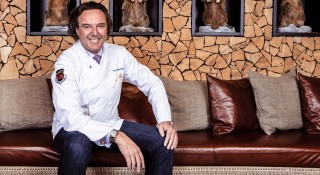Above: Away from Bozcaada’s picturesque waterfront, grapevines cover half the island.
A small Turkish island sees the revival of its wine industry
By Leisa Tyler
Bozcaada is enveloped by history. Look east toward Turkey’s Aegean coast and you’ll spot Mount Ida, where, in Greek myth, Zeus abducted the Trojan prince Ganymede. Farther north are the ruins of ancient Troy. And just beyond is the Gallipoli Peninsula, where Australian and New Zealand forces fell to the Ottoman Turks in 1915.
Once known as Tenedos, the island itself has a checkered past. It guards the mouth of the Dardanelles, and was fought over by Greeks, Persians, Venetians, Turks, and Russians before becoming part of modern Turkey in 1923. But it is Bozcaada’s age-old culinary traditions, specifically those of an enological nature, that I have come to explore.
It’s believed that viticulture took root on Bozcaada more than 5,000 years ago, when this dune-fringed island had links with winegrowers in Mesopotamia. Its arid climate and gentle topography proved ideal for a variety of grapes, including Vastlaki, Cavus, Kuntra, and Karalahna. Vineyards thrived. In the 17th century, Ottoman traveler Evliya Celebi proclaimed the island to have the finest wines in the world.
Winemaking then was in the hands of the local Greek community. But after 1923, when Bozcaada was ceded to the Turkish Republic, the Hellenic population began to leave, taking their knowledge and skills with them. Hoping to revive Bozcaada’s winemaking traditions, Turkish architect-turned-vintner Resit Soley is putting the little island back on the map.
“Bozcaada had it all, and then lost it all,” says Soley, a garrulous fiftysomething with a penchant for fast cars. “After the Greeks left, Bozcaada fell into disarray. I just wanted to help revive the island. If cement was produced here before, I might have built a cement factory. But wine is what matters here.”
Despite his initial inexperience, Soley has, over the last six years, transformed the ramshackle Tekel state wine factory and its neglected vines into a state-of-the-art winery. His cellar door has lofty ceilings and polished floorboards, and his wines, bottled under the label Corvus (Latin for “crow” and named for the mythological bird that Apollo punished by turning it from white to black), are equally surprising. In 2009 alone, labels among the 16 that Soley produces have taken home awards at a dozen international wine fairs.
It’s the tail end of winter when I visit Bozcaada, and the island is moving at the same languid pace I imagine has existed here for centuries. Farmers potter among olive trees on hillside groves; fishermen pull in their catch of the day; and groups of locals gather in the town square to gossip over glasses of honey-colored tea. The days are short and lazy for the 2,500-odd people who call the island home. But during the summer months, from July to October, tourists swell the population to 6,000 on any given day. You have to be lucky to get a seat at the local tavern. Tonight, however, there is only one other occupied table at the Yakamoz Restaurant, where I have arranged to meet Soley.
The sturdy stone restaurant looks out to the harbor and the imposing battlements of Bozcaada Castle. Soley orders a 2004 bottle of his own wine, a musky, full-bodied blend of Cabernet Sauvignon, Merlot, and Shiraz. “When you don’t have good grapes, you don’t have good wine. And without good wine, there is not good conversation. If there’s no descent conversation, then what do we talk about over dinner? The whole of society is ruined!”
Who am I to argue? We pop the cork and begin devouring the spread of local produce before us. There are small black olives and a smooth fava-bean paste, which we mop up with thick cuts of dark rye bread. We suck on fat, salty capers followed by raw sea urchins just plucked from their shells, and finish the meal with calamari rings in a tangy tartar sauce. Swirling his wine, Soley tells me that this is the very drop that helped earn Corvus its stripes. Only days before our dinner, a 2005 vintage of the same blend won first prize at the Berlin Wine Trophy. Soley is finding it hard to keep up with the increasing demand for his wines. “I keep running out, despite the ridiculous prices I charge for it,” he says with a grin. One fancy Istanbul hotel lists the Corvus Cabernet Sauvignon blend at US$280 a bottle. For me, however, the most impressive of Soley’s wines is the Vastlaki, a punchy, almost salty, white made from the same grape variety that the Bozcaadians first experimented with thousands of years ago, and that Soley has perfected with his organic farming techniques.
They say that grapes pick up traits of the environment they’re grown in. You often hear sommeliers speaking of “overtones” of blackberry, lime, cherry, and peach. To me, Soley’s wines hint of olives and the sea. With every whiff, I picture the waves crashing in on one of Bozcaada’s stony beaches—bodies baking in the sun while calamari sizzles on the barbecue.
The day after our dinner at Yakamoz, Soley takes me to visit the island’s oldest vineyard, Yunatcilar, one of the three main wine producers here. Dating back to the early 1900s, the gangly and skewered vines grow without the aid of a trellis atop a small hill. The land plunges down to the beach where we discover a new plot of vines, haphazardly established and drowning in a puddle of water. Soley guesses that they were planted less than two months ago.
Ever since Soley and his wines started fetching top dollar around the world, small plots like this have sprung up across the island. In fact, it’s estimated that vines now cover more than half of Bozcaada. Locals have converted their backyards into makeshift wineries, Soley tells me, and Bozcaada’s three original wineries—which, less than 10 years ago, mass-produced some of the cheapest and nastiest drops on the market—have begun to focus on quality, rather than quantity. Pensions and guesthouses are opening to cater to visiting gourmands. Still, there’s little chance of the island becoming overrun in the near future: there’s no airport. Instead, one must endure a six-hour road trip from Istanbul, followed by a ferry crossing from Geyikli. It’s still an effort to taste Soley’s wine at their source.
Back in Istanbul, I sit down to a meal and one last bottle of Corvus at Mikla, one of the city’s poshest restaurants. “Bozcaada is finally awakening,” says Mehmet Gurs, the owner, as he pours me a glass of the syrupy wine. “Resit really put winemaking —and Bozcaada—back on the map.”
On Bozcaada, visit the Corvus (corvus.com.tr) cellar door for tastings from June 1 to September 1, or stop at the Corvus Wine Bar in town (Cumhuriyed Caddessi). In Istanbul, sample Corvus wines at their larger shop on Ortakoy Meydan (Keymakci Sokak 3; 90-21/2236-7636).
Originally appeared in the June/July 2009 print issue of DestinAsian magazine (“Vintage Bozcaada”)

